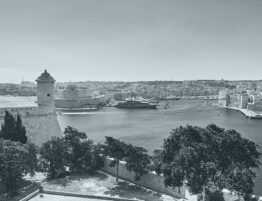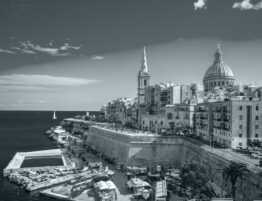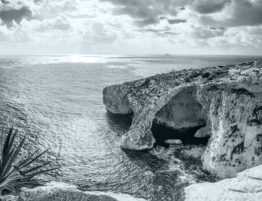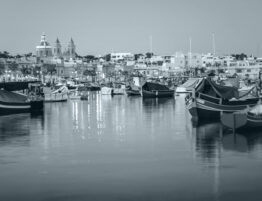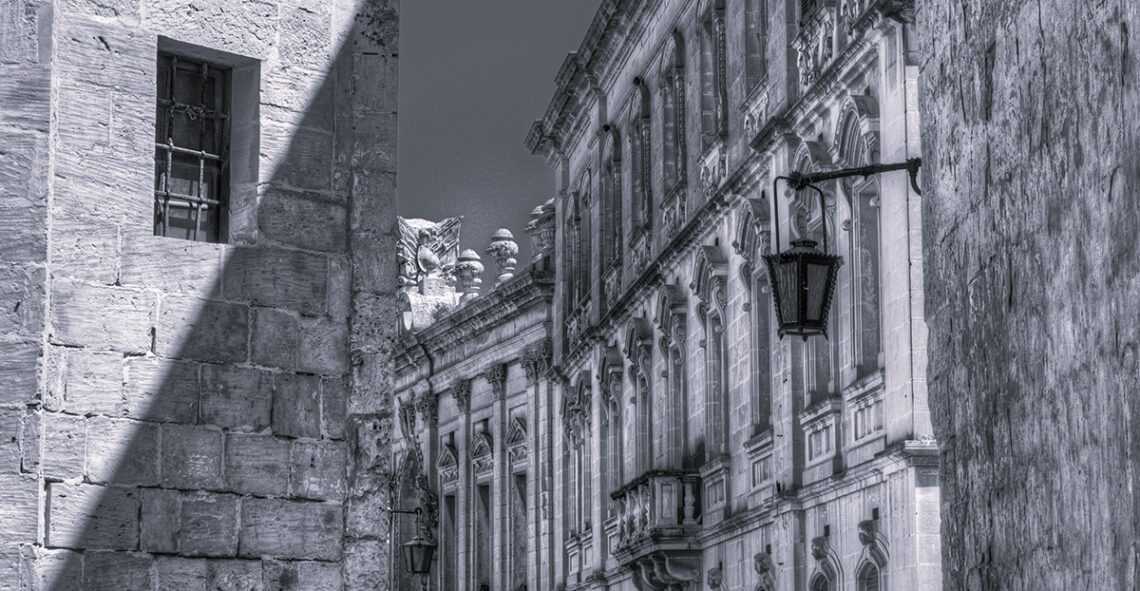
Malta’s Golden Visa programme, formally known as the Malta Permanent Residence Programme was launched by means of Legal Notice 122 of 2021 in April of 2021. Incidentally the launch happened with the announcement of the restrictions of the Portugal Golden Visa and rumours of its possible closure. In February of 2023, Portuguese Prime Minister Antonio Costa confirmed these rumours and announced that the government would be ending the Portugal Golden visa programme. As a result, Malta now presents the best alternative to Portugal’s golden visa programme.
Permanent Residency Malta Golden Visa Portugal Differences
As a country forming part of the European Union and Schengen, Malta’s residence by investment programme has been a popular alternative for expatriates seeking a safe European country which is centrally located in the Mediterranean Sea, making it an ideal base for travelling in Europe and North Africa. Malta is also part of the Commonwealth as it was a colony of the UK until 1964. As a result Malta has two official languages, Maltese and English, making it effortless to communicate with locals on the island.
Malta requires investment only on approval of the PR Application
One of the main differences between Malta and Portugal’s Golden Visa programme is that whilst in Portugal the investor would need to purchase a property before submission of the application, such investment is only required once the application is approved in Malta.
The applicant is only expected to visit Malta only on approval
Given that in Malta, the investor would need to rent or purchase a property only on approval, there is no need to visit the island before the issue of the letter of approval. In fact, in Malta, the submission of the application is done by the licenced agent through a Power of Attorney which the applicant signs. Once the letter of final approval is issued, the applicant would be invited to visit Malta in order to take biometrics for the residence card to be issued. In Portugal, the applicant would need to visit the country at the outset in order to open a bank account and to make the initial investment.
Malta grants Permanent Residence status immediately compared to a temporary residence permit issued in Portugal
The residence status issued by Malta under the Malta Permanent Residence Programme is immediate permanent residence from day one. Malta issues two documents on approval, one being a certificate of permanent residence without an expiry date, and secondly a residence card which is issued for five years and renewable indefinitely. This means that with a Malta PR, families are given the right to reside in Malta indefinitely from the moment of issuance of the residence certificate. Portugal on the other hand gives a temporary residence permit which is initially issued for one year and then renewable for two-year periods. In order to maintain residency in Portugal the investor would need to spend at least 7 days in Portugal during the first year and 14 days during subsequent years. Moreover, in the latest announcement issued by Portugal’s Prime Minister it was announced that renewals will only take place if the investor actually uses the property in Portugal as the main residential address of the applicant or if such property is rented out on a long-term basis.
Malta doesn’t require the purchase of a property. Rental of a Property is allowed to apply for Permanent Residence
Under the property investment route in Portugal, an investor was required to purchase a real estate for at least €280,000. Properties in specific locations required an investment of at least €500,000. It is not possible to lease a property in Portugal and qualify for the golden visa.
In Malta, the applicant is given the option to rent OR buy a property. Only on approval, an investor under the Malta PR programme would need to purchase a residential property costing not less than €300,000 for a property located in Gozo or in the south of Malta, or €350,000 for a property located elsewhere in Malta. Alternatively, the applicant would on approval be required to rent a residential property for not less than €10,000 annual rent for a property situated in Gozo or in the south of Malta, or not less than €12,000 annually for a property situated elsewhere in Malta.
The applicant is required to keep the qualifying property only for 5 years, however in order for the residence card to be renewed, the applicant would still need to have a property rented or purchased in Malta.
Malta requires applicants to provide evidence that they are economically self-sufficient
Unlike Portugal, in order to be eligible to apply for the Malta Golden Visa applicants would need to show possession of at least €500,000 worth of assets, out of which €150,000 shall be in the form of liquid assets such as money in a bank account or money invested in stocks or bonds. Crypto currencies are excluded in order to proof economic self-sufficiency. Under the Portugal Golden Visa programme, applicants were not asked to provide evidence of economic self-sufficiency.
Malta allows the inclusion of four family generations under one application
In Malta, the main applicant may add in the same application the main applicant’s spouse in a monogamous marriage or in another relationship having the same or similar status to marriage; children without age limits as long as they are not married and are still financially dependent on the main applicant, and parents/grandparents of both the main applicant and the spouse provided they are also economically dependent on the main applicant.
A special designated agency operates the Malta PR programme
The Malta Permanent Residence Programme is administered by a designated agency called Residency Malta Agency with the sole responsibility to manage and promote Malta’s residence by investment programme. The Agency is also tasked to receive applications, to conduct due diligence on prospective applicants and to issue the residence cards and certificates. On the other hand the Portuguese Golden Visa Programme is administered by SEF (Servico de Estrangeiros e Fronteiras) which is the Portuguese Immigration and Borders Service. This agency is responsible for all immigration matters in Portugal and for monitoring borders hence applications submitted under the Golden Visa programme are processed with other immigration programmes and not given a preferential treatment.
As a result applications under Malta’s Golden Visa are processed within a six month period whilst applications under the Portugal’s Golden Visa sometimes take up to two years to be processed.
Requirements – Malta’s Golden Visa Programme
The Malta Permanent Residence Programme requires investors to satisfy three main requirements. The majority of the requirements are to be paid upon approval of the application. The three requirements are as follows:
- Pay a one-time application fee to the Residency Malta Agency of €98,000 when renting a property or €68,000 if purchasing a property, and
- Rent a property in Malta for €10,000/€12,000 per year OR purchase a property for €300,000 or €350,000 (depending on the location), and
- Pay a donation of €2,000 to a local registered philanthropic, cultural, sport, scientific, animal welfare or artistic NGO.
From the above requirements, the applicant is only required to pay a non-refundable fee of €10,000 on submission of the application.
What are the main benefits of obtaining residency in Malta?
Benefits of Obtaining Malta Permanent Residency
• Having the right to settle, reside and work permanently in Malta
• Include all the family members in the application
• Enjoy visa-free travel within the Schengen Area and the right to reside in Schengen countries for 90 days out of 180 days
• Malta has a Mediterranean climate with mild winters and hot summers
• Cost of living in Malta is low compared to European countries with affordable housing, food and entertainment options
• English is an official language in Malta, making it an attractive destination for English-speaking expats
• Malta has a rich cultural heritage and is home to many historical sites and landmarks
• Malta has a high quality of life with excellent healthcare, education and government services
Malta Permanent Residence Programme Application Process
The first step in order to apply for permanent residence in Malta involves the engagement of a licenced agent such as our firm. The applicant gives a Power of Attorney to the licenced agent in order to compile the documents and prepare the application forms for submission. An application is submitted by the licenced agent and the applicant is not required to be in Malta in order to submit an application. Once the required documents and application forms are submitted to the Residency Malta Agency, the applicant would need to pay a non-refundable government fee of €10,000, which is part of the final contribution. On receipt of the application and government fee, the Agency will start reviewing the application and conducting a due diligence exercise. Such process is expected to take 4-6 months, after which the letter of in principle approval is issued. Once the letter of in principle approval is issued the applicant is required to pay the remaining government fee, rent or purchase property and give a donation to charity. Once these requirements are fulfilled, the Residency Malta Agency issues a letter of final approval and the applicant would be required to visit Malta to give biometric data for the residence cards to be issued. Once this is done the applicant becomes a permanent resident of Malta for life.
